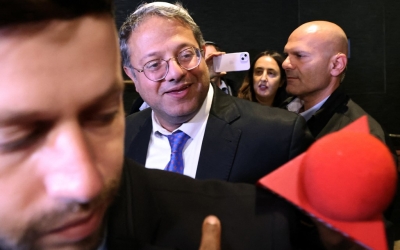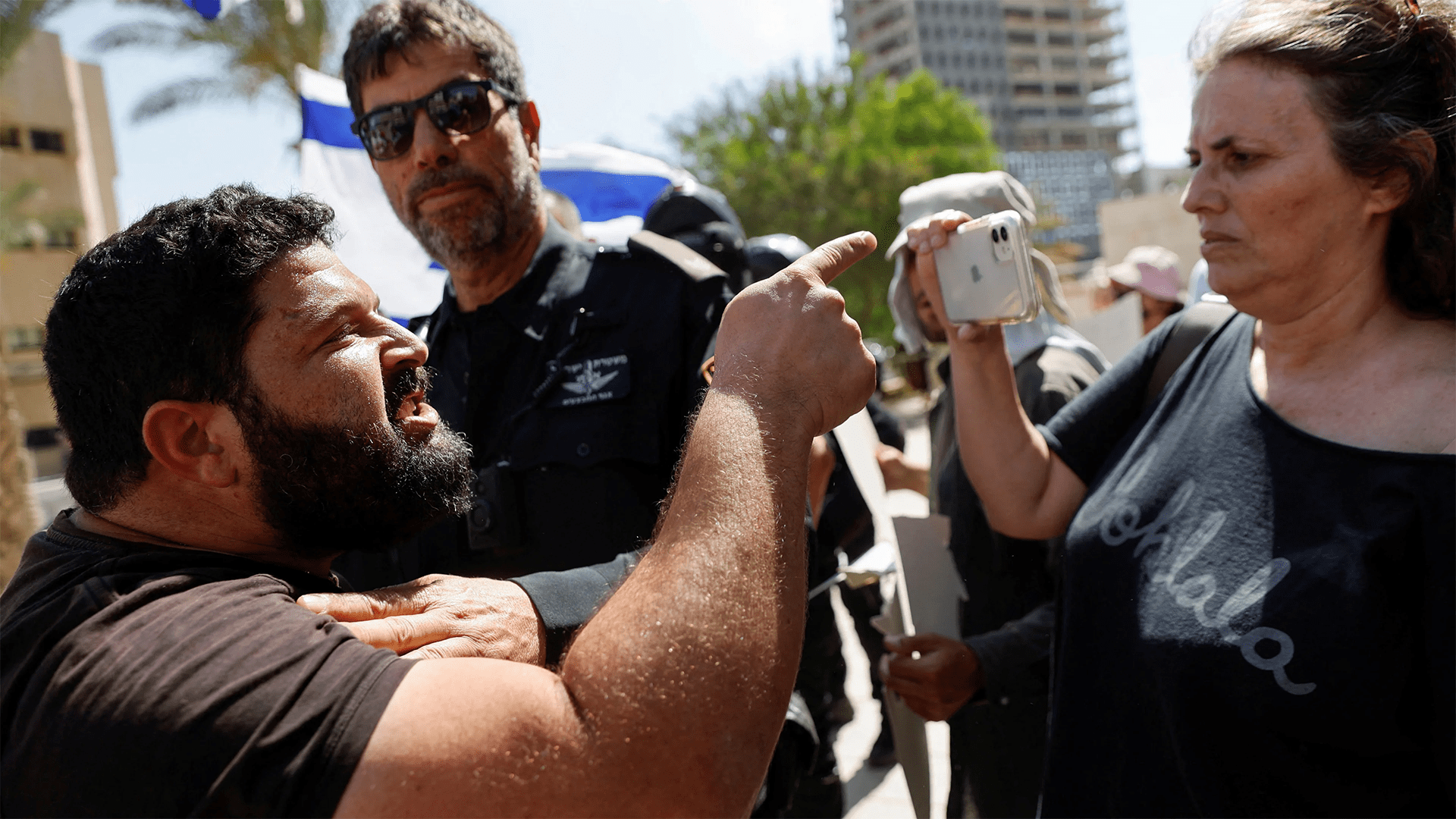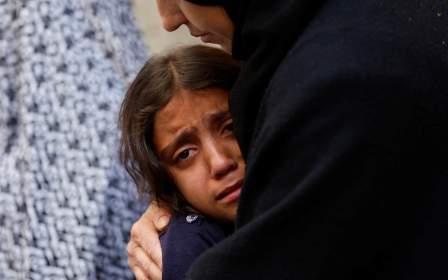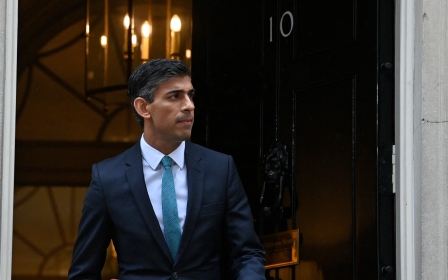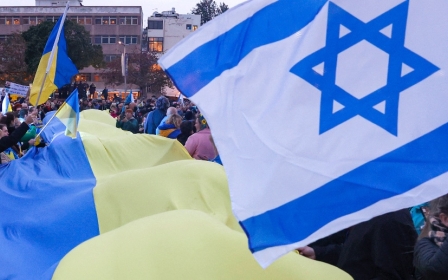Israel: Meet the new Knesset members of the far-right Religious Zionism party
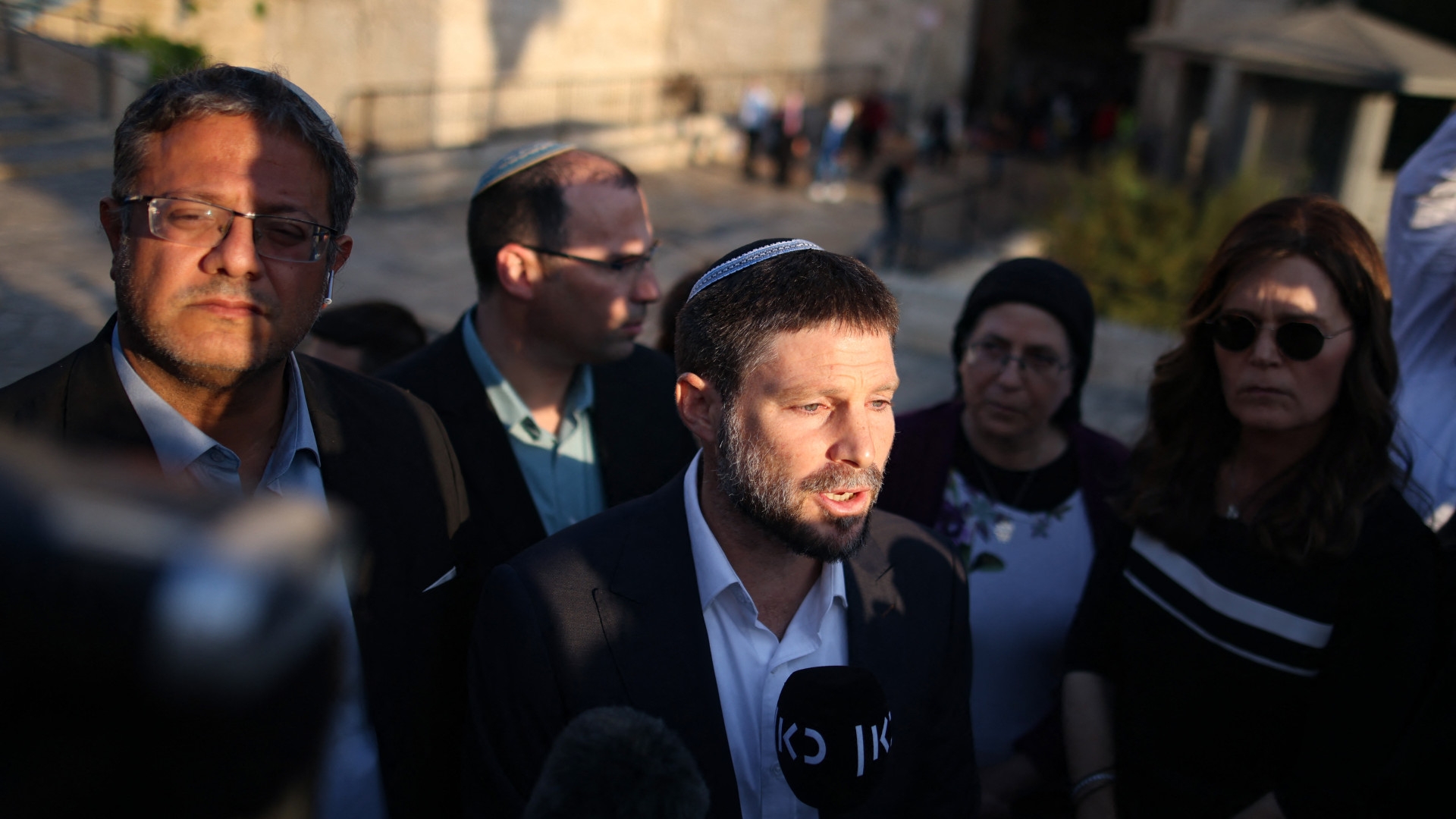
After the fifth attempt in three years, an Israeli election has finally delivered a decisive victory for the right-wing camp with ultra-nationalist parties emerging as the biggest winners.
Tuesday’s election was perhaps most notable for the rise of the Religious Zionism party, which will help seal the return of Benjamin Netanyahu as Prime Minister.
The far-right alliance was put together from several smaller lists, including Otzma Yehudit (“Jewish Power”), Noam, which fights for conservative “family values”, the National Union-Tekuma and Jewish Home.
With all the votes counted, results show that the alliance has won 14 seats in the 120-seat parliament, the Knesset, more than any religious-nationalist party in the history of the state. It is now the third largest party in the Knesset, after Netanyahu’s Likud and Yair Lapid’s Yesh Atid (“There is a Future”). The final results will not be certified until 9 November.
The politicians who head Religious Zionism - few of whom are women - are likely to occupy key ministerial positions in the upcoming Netanyahu-led government. These were their top ten candidates in Tuesday’s vote:
New MEE newsletter: Jerusalem Dispatch
Sign up to get the latest insights and analysis on Israel-Palestine, alongside Turkey Unpacked and other MEE newsletters
1) Bezalel Smotrich
The 42-year-old leader of the party is a lawyer and settler. Smotrich has described his desire to "abort" any hope Palestinians have of ever achieving equality in the “Land of Israel” (his term for all of historic Palestine): by them leaving, living as servants of Jewish citizens or being killed.
Smotrich was accused in 2017 of having a conflict of interests in his push to retroactively authorise construction of illegal settlements when it emerged his own house was built illegally in Kdumim, on the lands of the village of Kafr Qaddoum near Nablus. Smotrich opposes LGBTQ+ rights, and organized the anti-gay “March of the Beasts” to mock the Pride march.
Smotrich is a co-founder of the far-right NGO Regavim, which he also managed for its first years. Regavim co-ordinated armed vigilante mobs who descended on the city of Lod - known to Palestinians as Lydd - in bus-loads during the May 2021 attacks on the city’s Palestinians.
Before the elections, Smotrich called Benjamin Netanyahu a “liar” but also said that he would join Netanyahu’s coalition if it decriminalised the crimes of fraud and breach of trust, for which Netanyahu is currently standing trial, thereby giving the veteran politician a politically acceptable path to pardon himself.
2) Itamar Ben-Gvir
The 46-year-old far-right politician began his political activism aged 14. He was a member of the fascist Kach party, which was designated a terror organisation in Israel and outlawed in 1994. The Israeli military refrained from recruiting Ben-Gvir over his former membership in the organisation.
Shortly before Israeli Prime Minister Yitzhak Rabin was assassinated, Ben-Gvir boasted that he stole the emblem from Rabin’s Mercedes, and stated in a television interview, “Just as we got to this emblem, we can get to Rabin.”
Ben-Gvir dedicated his legal career to defending violent right-wing activists. He himself has said that 53 charges have been brought against him, of which he has been convicted of eight.
Ben-Gvir had a picture of Baruch Goldstein, who murdered 29 Palestinians in Hebron in 1994, in his living room, but was later forced to remove it.
Upon becoming a Knesset member in 2021, Ben-Gvir opened his parliamentary office in the neighbourhood of Sheikh-Jarrah, in occupied East Jerusalem - a provocation during the holy month of Ramadan.
He has repeatedly forced his way into the Al-Aqsa Mosque and was filmed threatening Palestinians with his pistol.
3) Ofir Sofer
This 48-years-old former infantry major in the Israeli army has been a member of three different Israeli political parties: Likud, Jewish Home and Religious Zionism. His main political agenda in the Knesset has been to increase the security budget and to “Judaize” the State of Israel.
4) Orit Strook
The most senior woman in the Religious Zionism party, 62-year-old Orit Strook is a settler in the heart of occupied Hebron who calls herself a human rights activist. In 2002 she founded the Judea and Samaria Human Rights Organisation, which promotes Jewish rights, especially the right to defend Jewish settlers in the occupied West Bank (and formerly the Gaza Strip) to protest against the Israeli government.
In the Knesset she has promoted the rapid construction of illegal settlements, the annexation of occupied land by implementation of Israeli laws over territory held in a state of “belligerent occupation”, and legislation to criminalise boycotting Israeli goods.
In 2014, Strook was among the loudest voices calling for an all-out attack on the West Bank, based on false information about the alleged kidnapping of three young Israelis wrongly blamed on Hamas. Although Strook won second place in the primaries of Religious Zionism, she was downgraded to fourth place to make way for Ben-Gvir and Sofer.
5) Yitzhak Wasserlauf
At just 30 years old, Wasserlauf is expected to become the youngest member of the new Knesset. He is the chairman of the Jewish Power party. In addition to his activism against Palestinians, Wasserlauf also promotes the deportation of non-Jewish African asylum seekers.
6) Simha Rothman
This 42-year-old lawyer represents the National Union party within Religious Zionism. He used to live in the illegal Gush Etzion settlement and now lives in the city of Lod. He has criticised the Israeli High Court and campaigned to weaken the judiciary. He is also part of the Temple Mount movement, which promotes the destruction of al-Aqsa Mosque.
On Wednesday he said he hoped the Netanyahu-led government would change the “status quo” at the mosque, which is an agreement that bans non-Muslims from praying at the site.
"It used to be completely fine to ascend the Temple Mount and pray and suddenly they started persecuting the worshippers," Rothman said. "The racist separation in the Temple Mount is not part of the status quo."
7) Almog Cohen
The 35-year-old Knesset member is part of the Jewish Power party. After his military service, Cohen served for 11 years in the Israeli police as part of a SWAT team.
Cohen recently published a photo taken of himself nine years ago kneeling over three Palestinians from the town of Rahat, Taleb Altouri and his two sons Rauf and Nidal, who lay bound on the ground. Cohen captioned the picture, “Those down there remember what I did in the army” with a winking emoji. The image meant the three men were able to identify Cohen as one of the police officers who attacked them. The three testified that the officers bound them, assaulted them in the groin area, urinated on their faces and threatened them with “a bullet to the head”. No disciplinary action has ever been taken against any of the police officers.
In May, Cohen founded an armed vigilante group to patrol southern Israel to “fight crime among Bedouins”. Cohen wiped his social media accounts in August. In previous posts he called the internal investigation unit of the police “post-Nazi attack dogs”, supported Russian President Vladimir Putin against Ukraine, and called for an operation against Bedouins in the Naqab, which he called “Crystal Night”.
8) Michal Waldiger
A 53-year-old lawyer and former council member of the town of Gan Shmuel, between Tel Aviv and Haifa, Waldiger works primarily on mental health, drug addiction and promoting conservative values.
9) Amichai Eliyahu
A 43-year-old rabbi and member of Jewish Power whose politics focus on building powerful Jewish religious organisations, opposing miscegenation and encouraging Jewish immigration to Palestine.
10) Zvika Fogel
This 65-year-old retired brigadier general in the artillery participated in the Israeli invasions of Lebanon in 1982 and 1996. He was also involved in the repression of the first and second Intifadas and the Israeli bombardments of the Gaza Strip in 2008-2009 and 2012. Fogel is part of the Jewish Power party, and his political activism focuses on annexing the occupied Jordan Valley.
Middle East Eye delivers independent and unrivalled coverage and analysis of the Middle East, North Africa and beyond. To learn more about republishing this content and the associated fees, please fill out this form. More about MEE can be found here.




